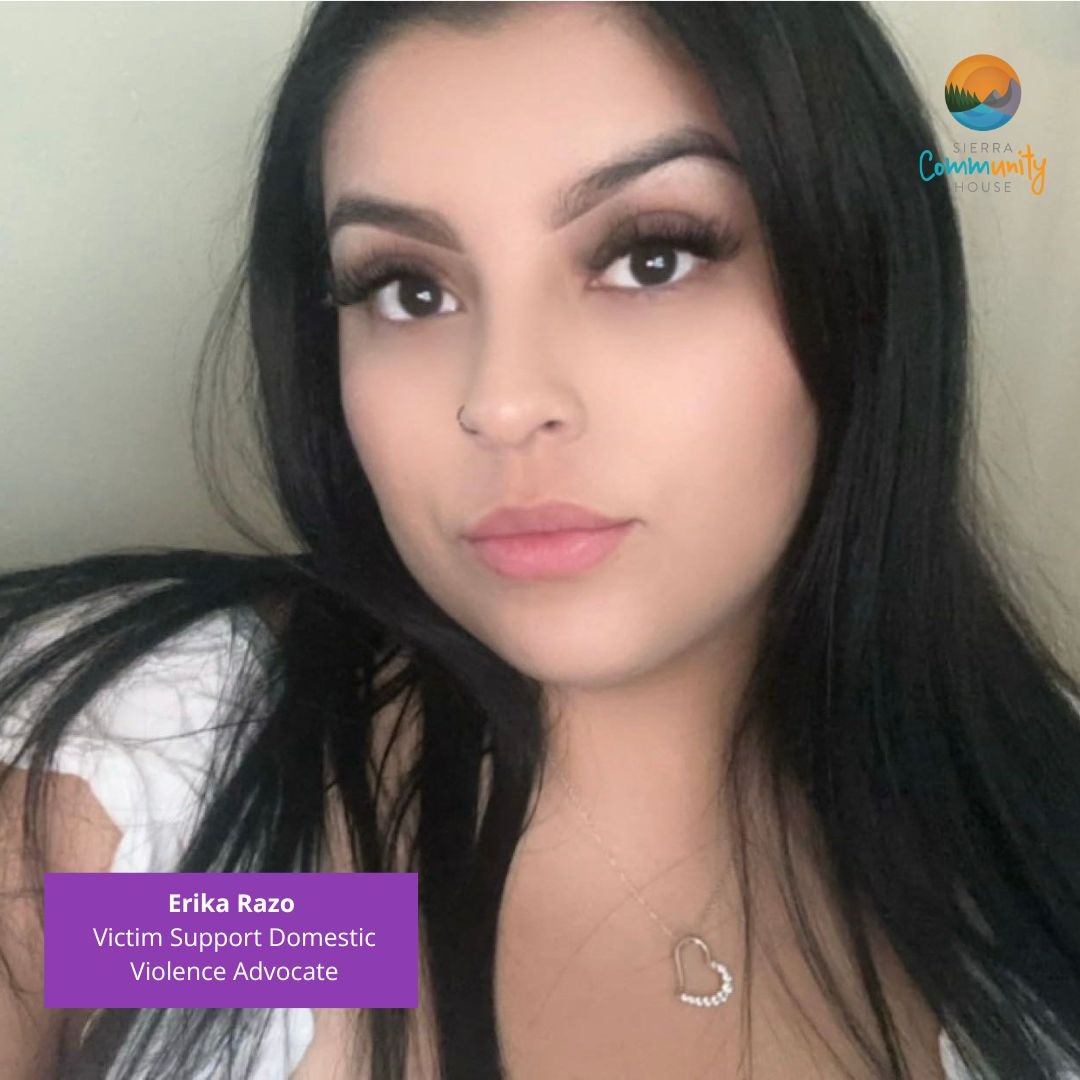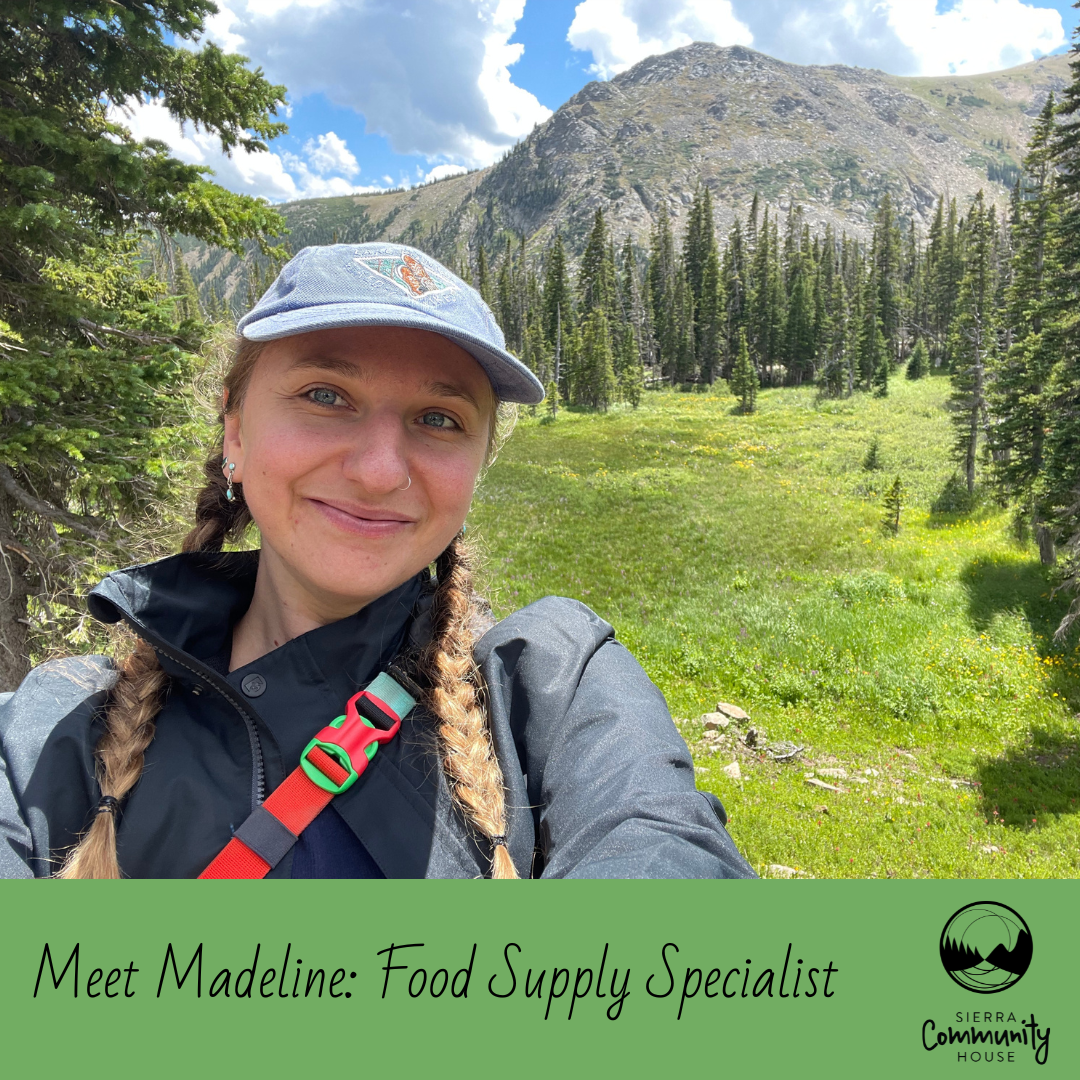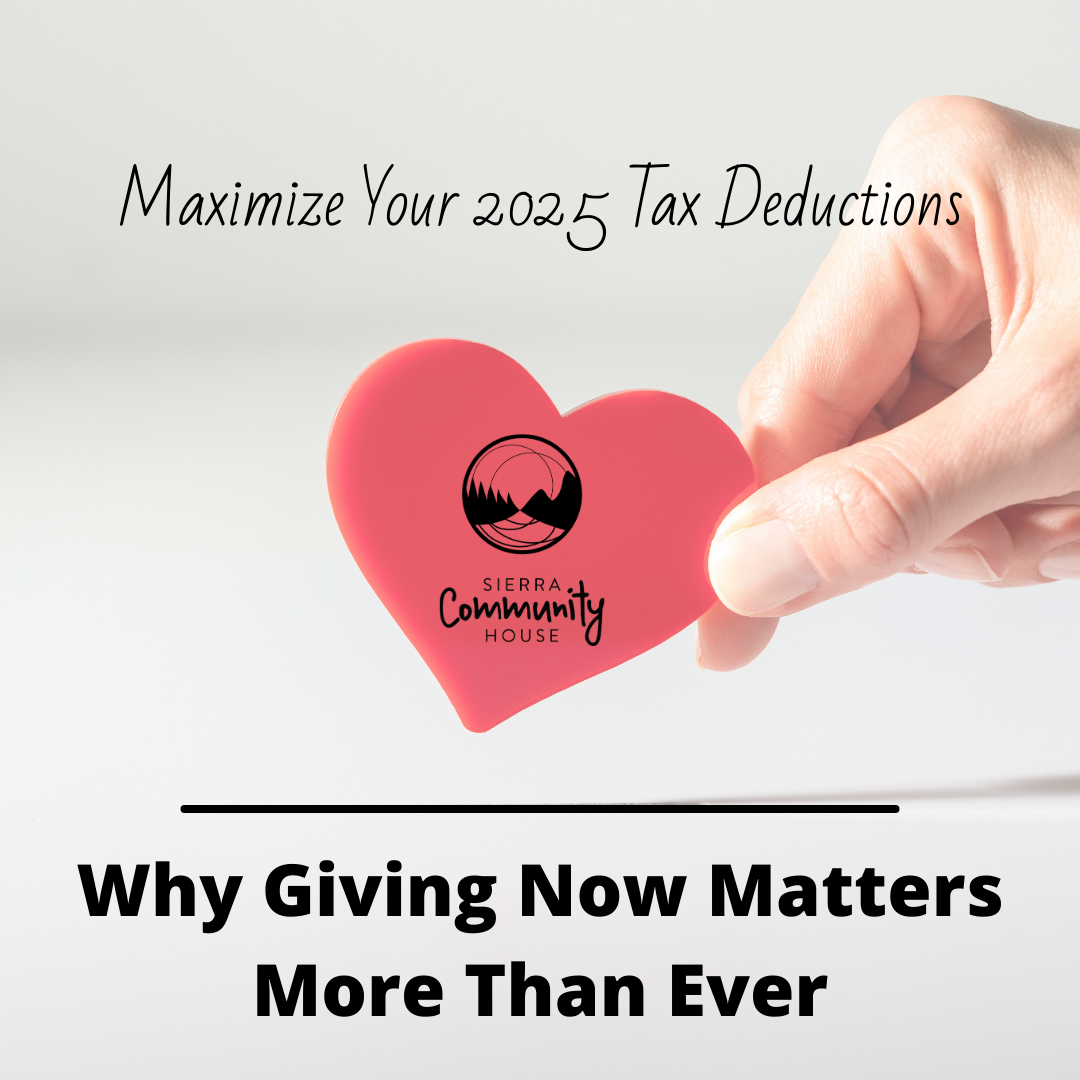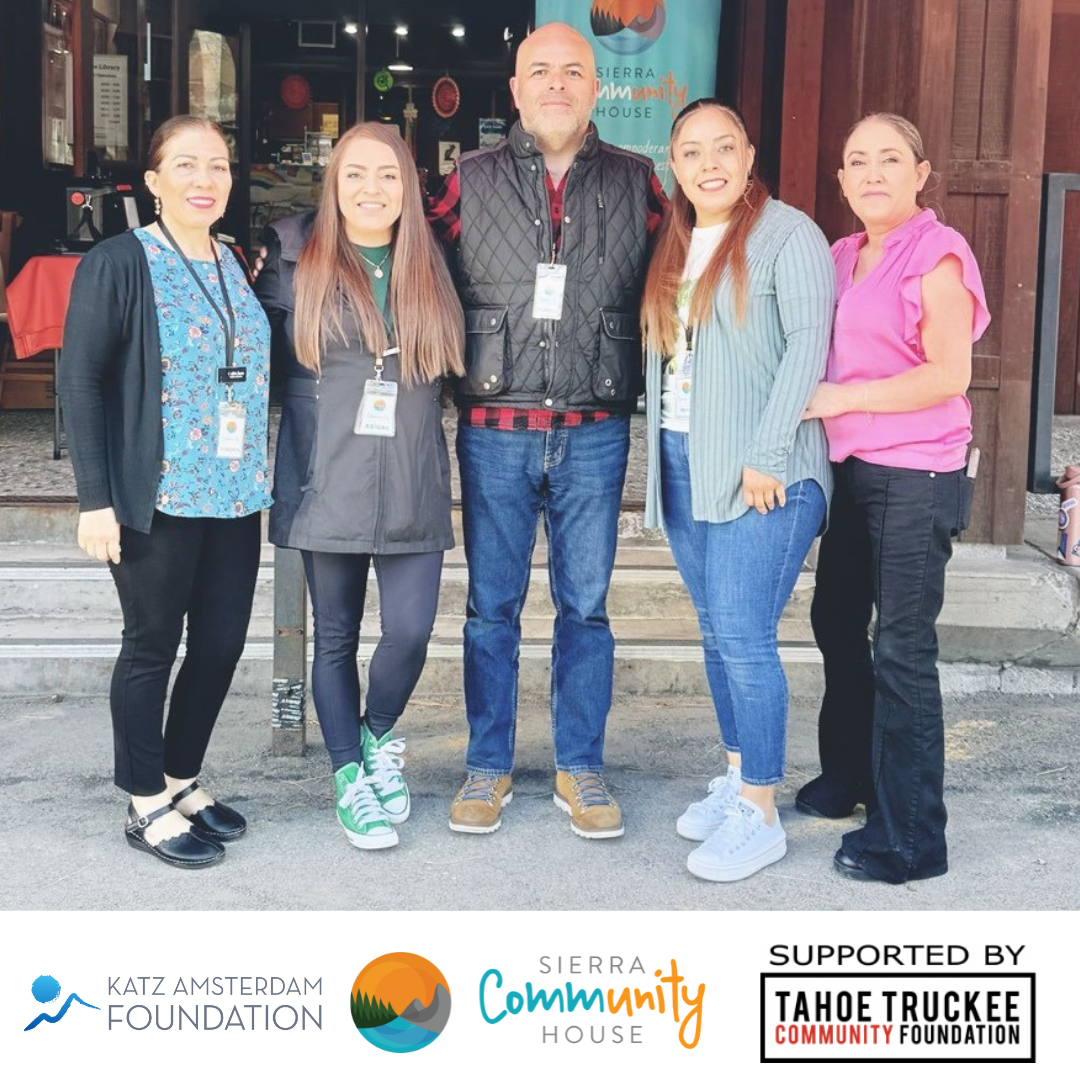Sierra Community House's Victim Support program is dedicated to serving victims of domestic and sexual violence. Our team works diligently to respond to community members in crisis, providing them with emergency shelter, therapy, legal assistance and more. Victim Support Domestic Violence Advocate, Erika Razo, tackles these situations firsthand. As we observe Domestic Violence Awareness month, we connected with Erika to learn more about her insight and the best strategies to navigate these difficult situations.
What motivated you to pursue a career as a bilingual advocate and what does your role entail?
I was motivated to pursue a career as a Bilingual advocate because there is a need in our community for bilingual services. I like being a bridge between the community members and the services so they can receive the full scope of services. I provide resources to community members, for example, domestic violence education/prevention, Restraining Orders, court accompaniment, financial assistance, legal assistance and case management, with focus in domestic violence, sexual abuse and/or child abuse.
What barriers do community members face when wanting to seek services?
Community members face several barriers when seeking services. Many individuals minimize abusive behaviors that are not physically violent, which can hinder their willingness to ask for help. Survivors often grapple with a desire to protect the person causing harm, making it difficult to pursue necessary resources. Additionally, the decision to leave an abusive situation is overwhelming, often requiring mental health support. Financial instability can further complicate access to services, as well as concerns about immigration status.
How do you balance empathy with the need to remain objective during a crisis intake?
When working with a community member as an advocate we provide support and provide options. It is up to the community members to choose how to proceed. I remain objective by keeping in mind that the decisions need to be made by the community members.
What strategies do you use to ensure effective communication with clients from diverse backgrounds?
Keeping an open mind knowing as an advocate we won't know everything, and we must give the community members space to speak about their experiences.
What makes you the most hopeful when you think about the next generation?
Anecdotally, I see the younger generation talking more openly and candidly about what a healthy relationship should look like. I think it has become more socially acceptable to discuss relationship issues and to be vulnerable when acknowledging warning signs. Specifically, I am hopeful about the work our Prevention team is doing in the local schools by empowering young people to know the signs early. At the end of the day, everyone knows someone who has been impacted by domestic violence, and the more informed we are about the signs, the more we can do as a community to solve the problem, together.
In conclusion, Erika Razo's insights emphasize the vital role of community support in helping survivors of domestic violence. By understanding the unique barriers they face and advocating for accessible resources, Sierra Community House creates a compassionate and effective network for those in need. As we recognize Domestic Violence Awareness Month, let us commit to being allies and amplifying survivors' voices, ensuring they feel empowered to seek help and reclaim their lives. To get involved with Sierra Community House, consider becoming a recurring donor, volunteering, or attending one of our upcoming events.

Recent News





